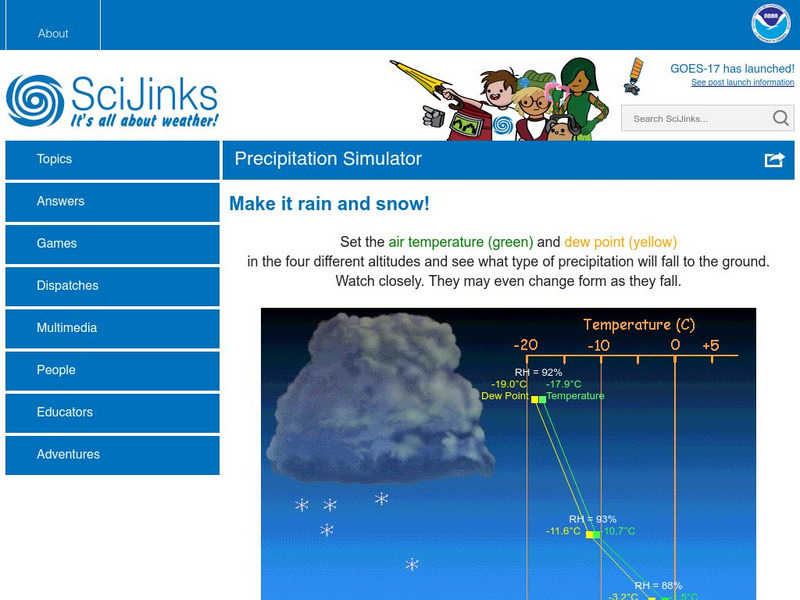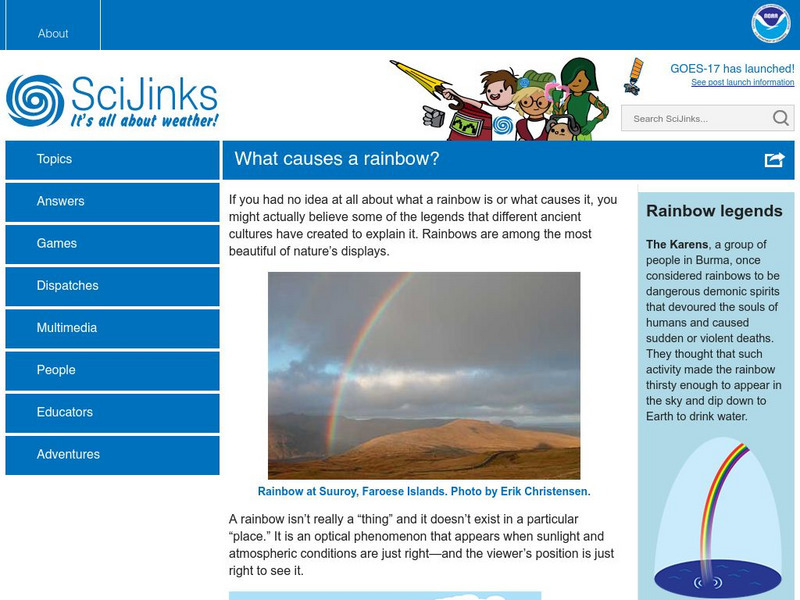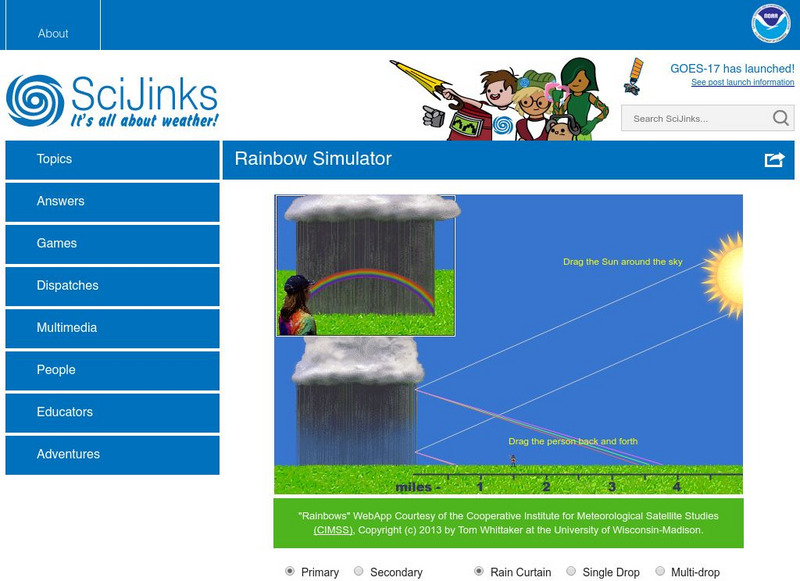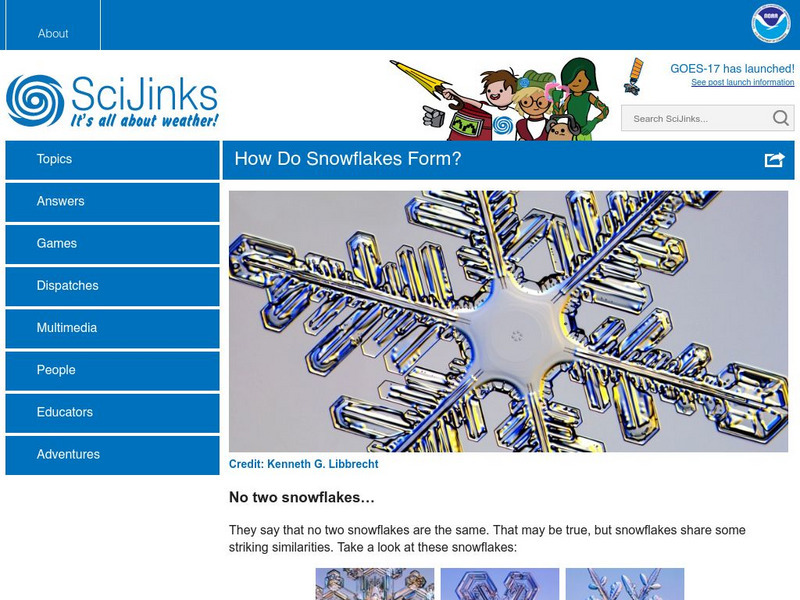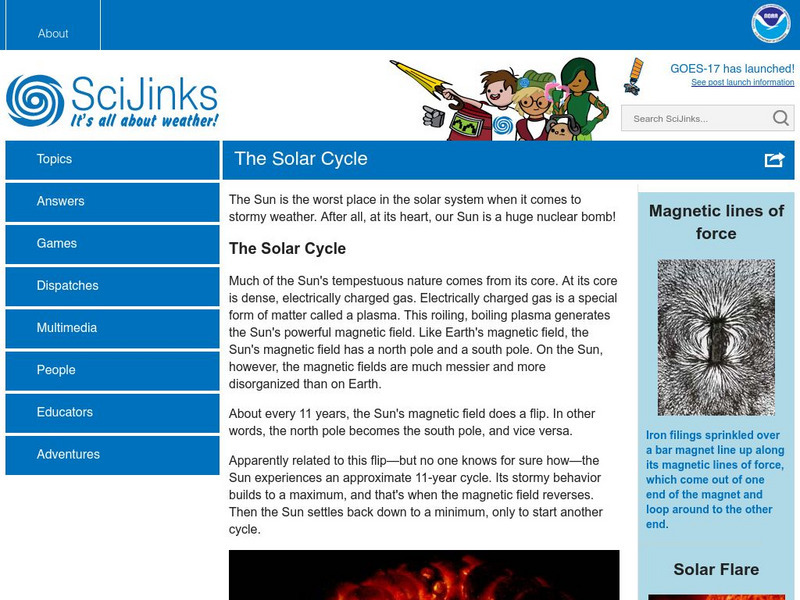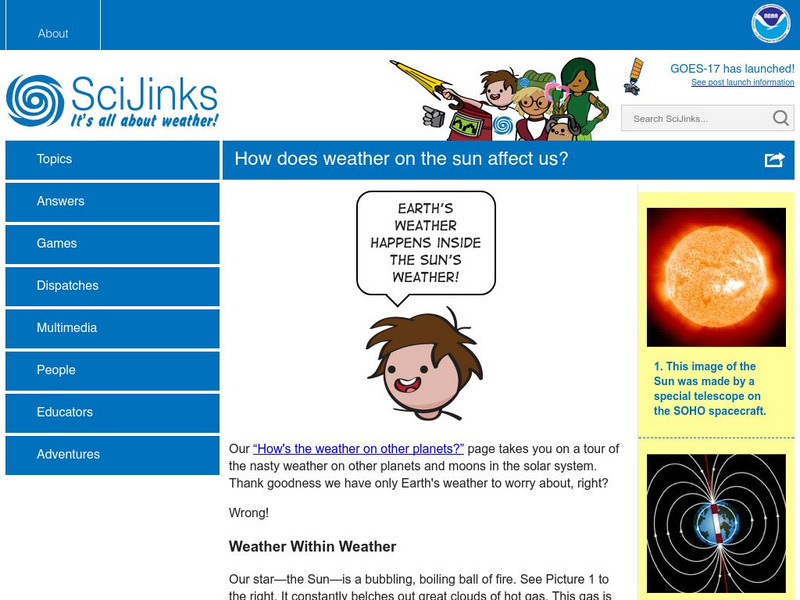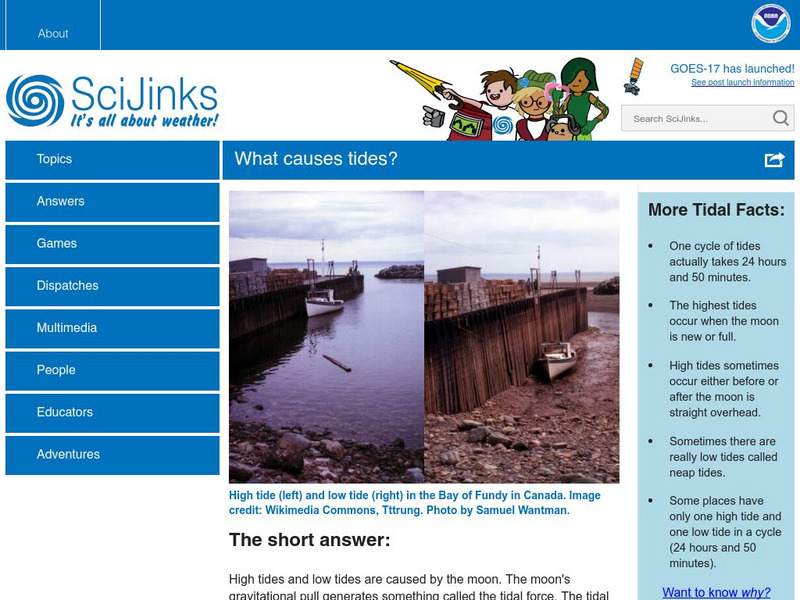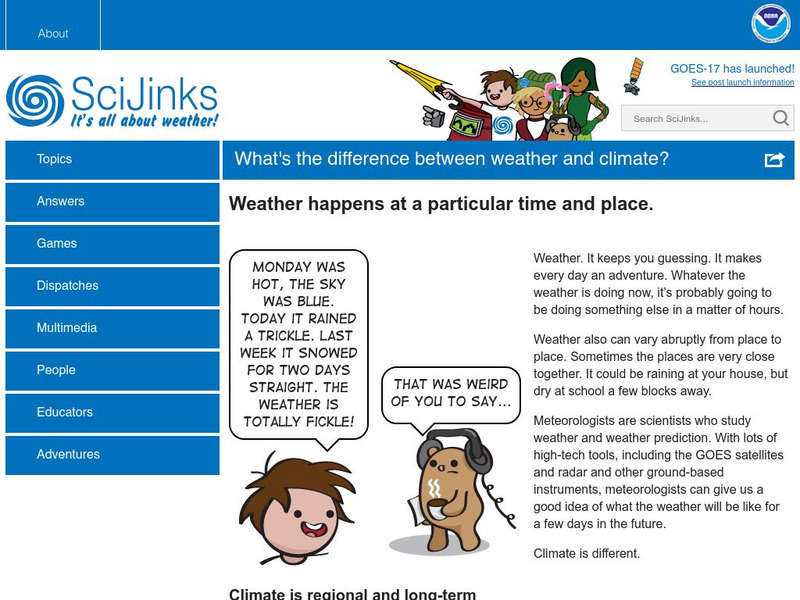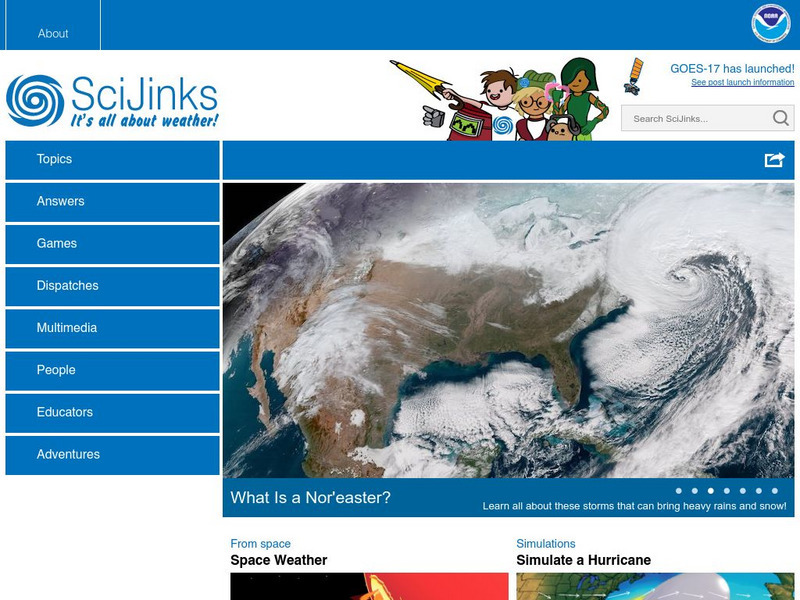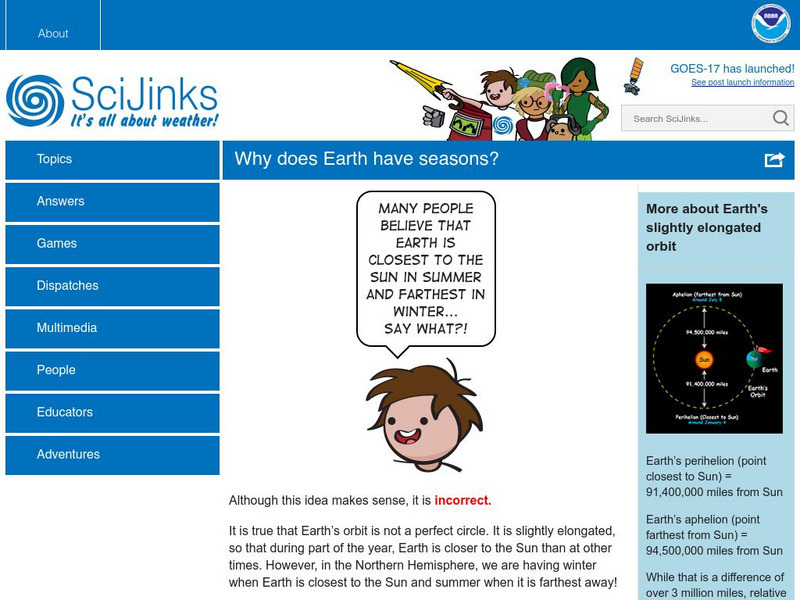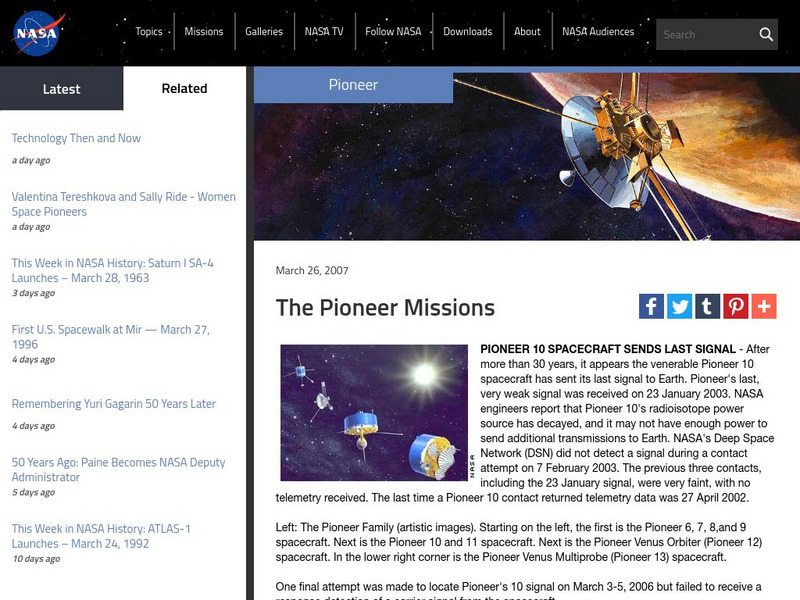NASA
Nasa: Sci Jinks: Why Do Satellites Have Different Orbits?
Learn about two types of satellite orbits and why the difference is needed.
NASA
Nasa: Sci Jinks: How's the Weather on Other Planets?
Compare weather here on Earth to other planets and moons in our solar system. You will find many similarities and differences.
NASA
Sci Jinks: Precipitation Simulator
Manipulate the dew points and temperature points in the activity to create different forms of precipitation.
NASA
Sci Jinks: What Makes It Rain?
or snow or sleet? Check out this concise explanation and illustration of the water cycle.
NASA
Nasa: Sci Jinks: What Causes a Rainbow?
Find out whatever you wanted to know about rainbows and how they form. Check out the section on folklore regarding rainbows too.
NASA
Sci Jinks: Rainbow Simulation
Play around with the variables involved in rainbows. We know we usually see rainbows following a rain shower. What's the science behind it? Find out with this interactive.
NASA
Nasa: Sci Jinks: How Do Satellites Help Save Lives?
Discover how rescuers use satellites to save people's lives. Find out what it takes to make a career saving people using satellites.
NASA
Nasa: Sci Jinks: Satellite Controller
Find out if you may want a career as a satellite controller. Read to find out what it takes and how to become a satellite controller.
NASA
Sci Jinks: What Is Scientific Method?
This resource provides the seven steps of the scientific method which can be used as an introduction or review.
NASA
Sci Jinks: Grow Snow Crystals
Discover how snowflakes are created. Use this interactive to recognize the role temperature plays in the formation of snow crystals.
NASA
Sci Jinks: How Do Snowflakes Form?
Is it true that no two snowflakes are alike? Take a look at the details that make up a snowflake to find out if the statement holds any truth.
NASA
Sci Jinks: Why Does the Sun Have Temper Tantrums?
The sun is a huge volatile object in the sky. Find out what makes it so unpredictable.
NASA
Nasa: Sci Jinks: How Does Weather on the Sun Affect Us?
Discover how the weather on the sun can affect things that happen here on the Earth.
NASA
Sci Jinks: Storm Surge
Could storm surge actually be worse than a hurricane? Find out the details.
NASA
Sci Jinks: Tidal Curiosities
Understand where tides come from. This brief article illustrates and describes the science behind high and low tides as well as why some places experience only one high and low in a twenty-four hour period.
NASA
Sci Jinks: What Causes Tides?
How do ocean tides work? What causes them? Find out with this resource.
NASA
Sci Jinks: Tornado Simulator
Utilizing this interactive, students will manipulate the funnel's width and the core pressure difference will illustrate how tornadoes work.
NASA
Sci Jinks: What's the Difference Between Weather and Climate?
Weather and climate may be lumped together when meteorologists talk about them, but they are two different things. This brief article identifies how to differentiate the two.
NASA
Nasa: Sci Jinks: How Did Earth's Atmosphere Form?
Discover how the Earth's atmosphere has evolved over time. Find out why the current atmosphere is good for living organisms.
NASA
Scijinks: It's All About Weather
Scijinks offers interactive activities covering weather. Find out how weathermen predict the weather, write a fun book about weather, pick a science project, and much more.
NASA
National Aeronautics and Space Administration: Scijinks: Seasons
An explanation about the rotation of the Earth and why the Earth has seasons.
NASA
Nasa: Mission: Science: Electromagnetic Spectrum: Infrared Waves
Infrared light lies between the visible and microwave portions of the electromagnetic spectrum. Infrared light has a range of wavelengths, just like visible light has wavelengths that range from red light to violet.
NASA
Nasa: Mission Archives: Pioneer Project
This is the home page of NASA's Pioneer Project. Content includes a general overview of the probes' missions, news, and history.




